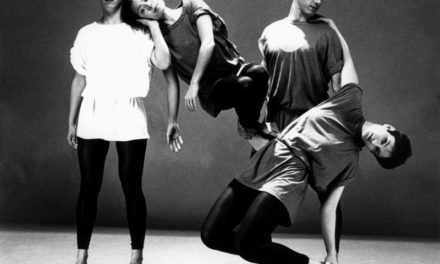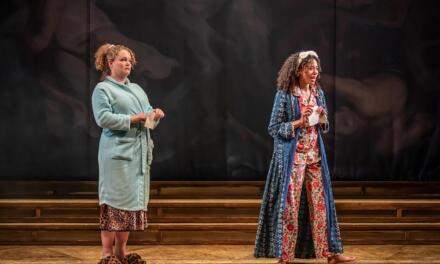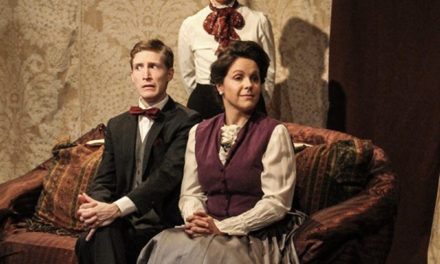Today, 23rd of April 2021, is the 405 anniversary of Shakespeare’s death. In two months, on the 23rd of June, it will be five years since the Brexit’s referendum. That day my notion of being a foreigner changed forever and so it did for many people. For the next two months, in between these relevant dates, we will relaunch our project The Other Solos, Shakespeare. This is how we created it and how it has accompanied us to date.
In February of 2016, the year that Leave was voted, The Guardian launched a campaign called The Shakespeare Solos in which well-known UK performers recorded a variety of Shakespeare’s speeches and soliloquies. A few weeks later I had an idea: How about creating a parallel project in which we give a voice to foreign actors? What could be more perfect than finding those words at the core of British tradition? Shakespeare’s plays are full of foreigners and the message is clear; he supports diversity, tolerance and freedom. I knew I could find those words I was searching for in Shakespeare’s works but when my collaborators pointed me in the right direction I was surprised to see that there is such richness, variety and depth when it comes to Shakespeare and strangers. It is overwhelming and, personally, really satisfying to see how many of his characters talk about the experience of being a migrant and the level of injustice, shame and rejection this involves.
During my early years training and working in London I got to meet many incredibly talented and professional foreign actors who had a special connection with Shakespeare and came to England to train, only to find out that despite the fact they have paid a ridiculous fee for their education, it is extremely difficult to access the UK professional industry if you have an accent. Let alone, playing Shakespeare. For me, getting to know these brave, talented professionals was so inspiring. And they became the engine of this project. The cast is formed by Lise Aagaard (Denmark), Liraz Chamami (Israel), Hervé Goffings (France), Paul Sebastian Mauch (Argentina), Konstantinos Kavakiotis (Greece), and myself Paula Rodríguez (Spain). They all have brought a very strong and personal point of view into the project and they all know their Shakespeare. They also know what it feels like to be a foreigner in a country with a different context, perspective, weather, food, humour, rules, and moreover to try to build an artistic career in it. The production/creative team is formed by people I also enormously respect professionally. They also are in direct contact with the difficulties of these matters. Patricia Rodriguez (production) is a published author, Dominik Webb (Filmography) is a multidisciplinary creator, Ben Naylor (Text Director) is a Theatre Director and Shakespeare expert, and Carmen Marrero (Music) is a senior PR and an exquisite pianist. Everyone was keen on being part of this project because everyone understood the need and the urgency to share these words. The relevance of bringing Shakespeare back through the voice of the others. That is how The Other Solos, Shakespeare was born, a series of six Shakespeare monologues, released on YouTube, tackling issues of migration, exile and identity. Today, our YouTube Channel has hundreds of subscribers and the monologues have had over 30K views.
http://www.youtube.com/channel/UCRFLGvOHIAneOOAeUjrcTbA
The process of selection of texts happened very organically. When I approached the actors and asked them to participate in the project most of them already had a monologue in mind, a piece they had used as part of the repertoire that, in most cases, meant a lot to them. Some of the monologues we chose simply had to be part of the project, such as Thomas Moore’s speech “Imagine that you see the reached strangers”, which has now been performed to excess but that at the time was an original discovery. Ben Naylor pointed us in the direction of this text and another essential one as is Coriolanus’ monologue “You common cry of curs”. Something particularly interesting in these two pieces is that the speaker is addressing the mass and questioning their decisions when voting and their political believes. Throughout the texts we also see characters speaking directly to those in power, the kings, the oppressors. These fragments are full of questions. These are the questions of those who are in great need to understand, to make sense of great injustice imposed on them by those who use their power on behalf of fear and separation. The actors worked with a sense of “representing” these stories instead of performing them.
The monologues were shoot relying completely on the actor’s presence, no background, no effects. The set created an empty, neutral space so that the audience would concentrate on the actor right in front of them, and that what she or he needs to say. The idea is to communicate and touch through the screen, reach. We focus on transmitting the universal message behind each text, through the particularities of these six unique characters. All of them are at the core of an epic classical play, all are memorable yet so relatable and human. We took the texts out of the contexts adding just a little point of reference with a simple title at the beginning of each video. The words speak for themselves. They feel so close. When I listen to these texts today, unfortunately, they resonate even stronger than three years ago, when we first launched the project. It is clear to me that the political issues this project speaks about are now at greater stake and the need to give foreigners a voice in this country and around the world is an artistic and social “must”.
I believe theatre should represent everyone. I take the bus every day in London and hear so many accents which I am totally fascinated by, they are unique, beautiful, and hide a story I want to know more about, which is such a powerful element in performance, in my opinion. There is an urgent need to hear these accents on stage, the RP accent is beautiful and represents a tradition I admire and respect a lot but there should be space for much more. The theatre community should be open-minded and excited about new ways and new sounds.
From the beginning, our idea was to work with foreign actors and celebrate their accents. As an actor living in the UK, I have been incredibly lucky to be able to work and develop my craft further in a professional world, thanks to those who are slowly changing the game and have given me and others amazing opportunities because they could see beyond how we sound. As an example, I was so delighted to play Viola as part of Flute Theatre’s production of Twelve Night at Chichester Festival 2019, directed by Kelly Hunter. The reality is that the industry is very tough with this issue – the way you sound must be labelled and there is not much to do outside that box: exotic, foreign, cleaner, terrorist. Those are a few options, and as an actor, you only represent the stereotype of your culture or any other you can pass as. As I have mentioned, this is beginning to change very slowly, but still, I feel most directors think that they need to justify themselves when they choose to have an actor with a foreign accent on stage, it is a very rare thing to see in big venues, and not so common in Fringe Theatre either, especially on a Shakespeare production. A professional actor is completely capable of speaking with an accent and communicates being 100% understandable, sometimes adding a new layer of meaning and feeling to the text. In my opinion, theatre is not only words, it is what happens in between the words: it is energy, flesh, conflict. The most interesting actor to look at on a stage is the one that has the deepest conflict. The experience of being a foreign actor and having to perform in another language is already bringing up the stakes. I think there should be more of a place for it, it needs to be explored further, celebrated and respected.
As mentioned at the beginning, lots of Shakespearean characters are foreigners confronting issues of allegiance and identity. From shipwrecks to warlords, his plays tell the stories of human beings exposed to the difficulties and injustices that exile and banishment bring. His plays take place in lands far away, what an amazing opportunity to explore an international cast in a play like The Tempest, for instance. The world is experimenting with a change of paradigm, there is a great deal of agitation around matters related to origin. Words such as nationality, visa, passport, or heritage are gaining more and more weight in our lives, while the world becomes narrower and narrower. Among all this commotion, the foreign accents of international actors saying Shakespeare, are more poignant than ever.
This post was written by the author in their personal capacity.The opinions expressed in this article are the author’s own and do not reflect the view of The Theatre Times, their staff or collaborators.
This post was written by Paula Rodríguez.
The views expressed here belong to the author and do not necessarily reflect our views and opinions.


















